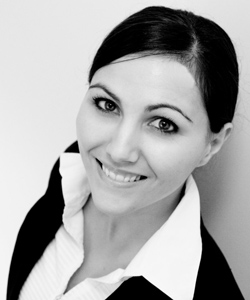So you want to do some good, and establish a new charity to help someone or something? An option is to set up your own charity. This is rarely the right option for the
cause, though it may be the right option for
you. Whilst it seems, on the face of it, a selfless act setting up a charity is often as much about you as the cause. This is not a bad thing - after all, Barnardos, Greenpeace and MSF wouldn't exist and be doing their great work if they hadn't been set up by someone.
But, and it is a big but - there are now so many charities it is unbelievable. And many of these are set up and run by well meaning amateurs trying to do some good and make themselves feel good about it. Maybe they are angry about injustice or just want to do their bit.
Setting up a charity is almost certainly not the best way to help change the world. Volunteering, fundraising or donating to an existing charity is likely to have a greater impact.
The only factor that would make setting up your own is passion - it is more likely that you will throw everything into 'your own baby', which is not a bad thing.
Even so, make sure you do your research and speak with the experts. Understand the impact that what you will do will have on other organisations. Remember that the thing you are excited about is likely to be because you happened to see and witness it, but it is probably not the most pressing problem in that country or region.
Here are some examples of how well meaning amateurs think they are doing good but could end up causing more damage.
* Several INGOs pull out of a region to force an end to specific corruption; you come in and innocently perpetuate the problem.
* A business owner introduces a malaria eradication program in a village in a poor country she has vacationed in. Infant mortality from malaria in that village goes down - but malnutrition zooms up and conflict with the next village escalates. An experienced NGO would have combined the malaria reduction with sexual and reproduction advice and worked with local villages to implement and spread the model.
* A returning holiday maker decides to distribute pens, school bags and other stationary to a school they happened to visit. When the kids go home, bullies from other schools pick on them and nick their stuff.
* A manufacturer decides to sell shoes to affluent westerners and distribute a free pair to a poor person in a particular country. Unless the shoes are made local to the poor beneficiary, it is likely that the shoe manufacturers in their region will be put out of business; creating more problems.
* A woman is helped to set up her own business buying fish direct from the fisher, not the local wholesaler. This makes her business better, but of course damages the wholesaler.
None of the above examples are necessarily wrong; and maybe the benefits outweighed the advantage - but all of them had undesired and unexpected impacts that only someone who is involved in such work could predict.
Usually the side effects are benign, and manageable but occasionally things go horribly wrong. Stories like
this one about a false orphanage run by an Indian missionary are rare but people are often desperate when they are poor and it is easy to make up a scam and take advantage of well meaning tourists.
Of course, established charities make mistakes too - but on balance they are going to get more things right than wrong.
If you still want to set up a charity (in Australia), check out Philanthropy Australia's guide
here.
http://www.philanthropy.org.au/research/faq.html
Sean



